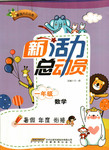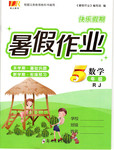题目内容
As a high school coach, I did all I could to help my boys win their games. I cheered as hard for ________ as they did. A dramatic ________, however, following a game in which I was a referee, changed my ________ on victories and defeats.
It was a league championship basketball game between New Rochelle and Yonkers High. New Rochelle was ________ by Dan O’Brien, Yonkers by Les Beck. The gym was ________, and the noise made it impossible to hear. The game was well played and ________ competed. Yonkers was ________ by one point as I ________ at the clock and discovered there were but 10 seconds left to play. New Rochelle,________ the ball, passed off and shot. The ball ________ around the rim (篮筐边沿) and off. The fans ________. New Rochelle recovered the ball, and tapped it in for what looked like victory. The noise was ________.
I looked at the clock and saw that the game was over. I hadn’t heard the final buzzer (终场哨) because of the noise. I ________ with the other official, but he could not help me. So, I ________ the timekeeper, a young man of 17 or so. He said, “Sir, the buzzer ________ before the final tap-in was made.” Yonkers won!
I had to tell O'Brien the sad news. His face ________. The young timekeeper came up and said, ?I?m sorry, Dad. The ________ ran out before the final basket.”________, like the sun coming out from behind a cloud, O?Brien?s face lit up. He said, ?That?s okay, Joe. You did what you had to. I?m ________ of you.? The two of them then walked off the ________ together, the coach?s arm around his son?s shoulder.
1.A. honesty B. devotion C. victory D. glory
2.A. conversation B. incident C. gesture D. challenge
3.A. view B. comment C. theory D. impression
4.A. organized B. represented C. fancied D. coached
5.A. crowded B. cleared C. quaked D. arranged
6.A. happily B. closely C. smartly D. randomly
7.A. moving B. progressing C. leading D. shooting
8.A. waved B. glanced C. signaled D. stared
9.A. in possession of B. in charge of C. in need of D. in place of
10.A. stuck B. fell C. swung D. rolled
11.A. laughed B. jumped C. yelled D. danced
12.A. annoying B. amazing C. thrilling D. deafening
13.A. examined B. watched C. researched D. checked
14.A. criticized B. approached C. interviewed D. reminded
15.A. broke down B. faded away C. went off D. carried on
16.A. clouded over B. softened up C. sweated over D. wrinkled up
17.A. audience B. ball C. time D. player
18.A. Certainly B. Similarly C. Fortunately D. Suddenly
19.A. ashamed B. proud C. aware D. fond
20.A. court B. course C. track D. field
 新活力总动员暑系列答案
新活力总动员暑系列答案 龙人图书快乐假期暑假作业郑州大学出版社系列答案
龙人图书快乐假期暑假作业郑州大学出版社系列答案
